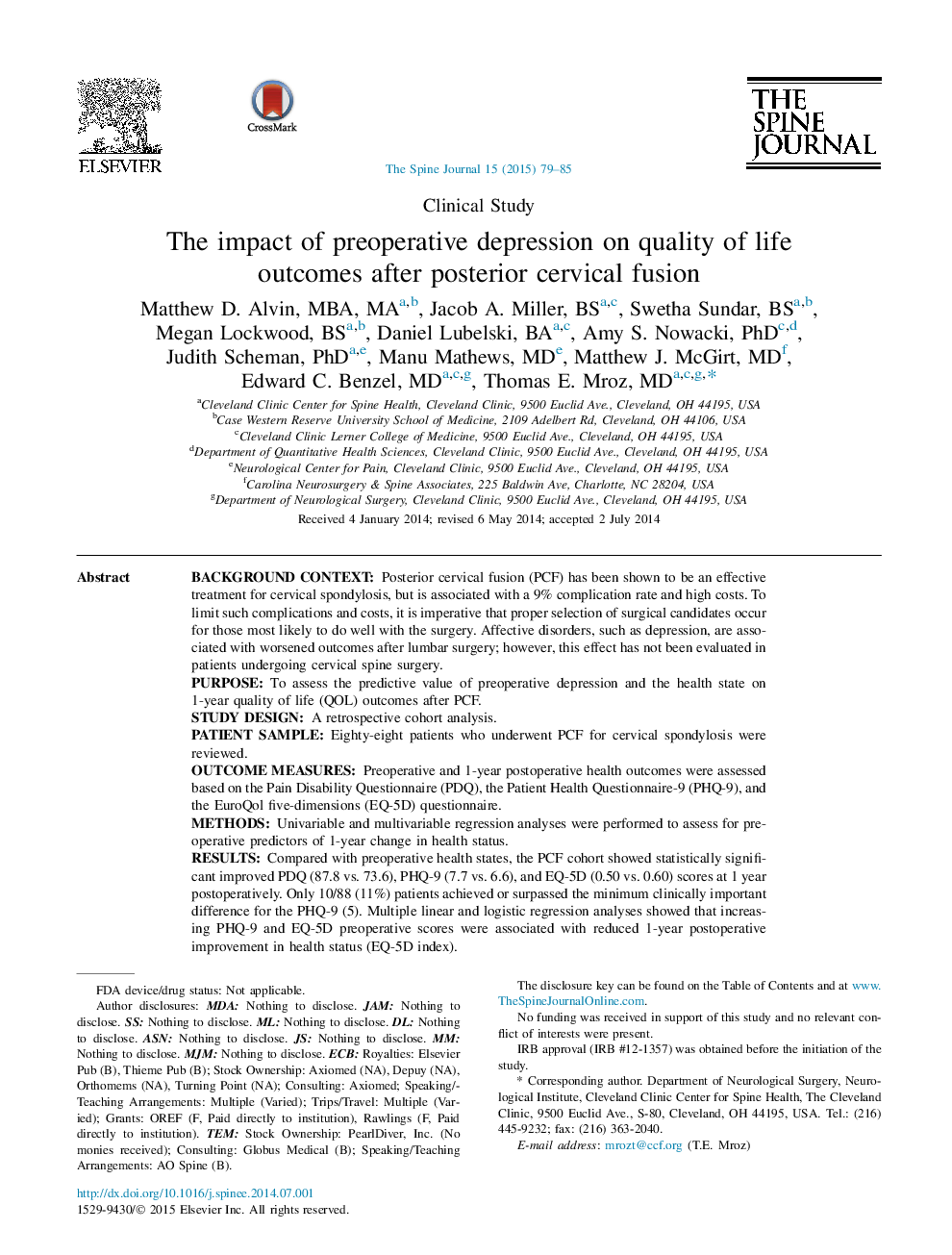| کد مقاله | کد نشریه | سال انتشار | مقاله انگلیسی | نسخه تمام متن |
|---|---|---|---|---|
| 4096502 | 1268564 | 2015 | 7 صفحه PDF | دانلود رایگان |
Background contextPosterior cervical fusion (PCF) has been shown to be an effective treatment for cervical spondylosis, but is associated with a 9% complication rate and high costs. To limit such complications and costs, it is imperative that proper selection of surgical candidates occur for those most likely to do well with the surgery. Affective disorders, such as depression, are associated with worsened outcomes after lumbar surgery; however, this effect has not been evaluated in patients undergoing cervical spine surgery.PurposeTo assess the predictive value of preoperative depression and the health state on 1-year quality of life (QOL) outcomes after PCF.Study designA retrospective cohort analysis.Patient sampleEighty-eight patients who underwent PCF for cervical spondylosis were reviewed.Outcome measuresPreoperative and 1-year postoperative health outcomes were assessed based on the Pain Disability Questionnaire (PDQ), the Patient Health Questionnaire-9 (PHQ-9), and the EuroQol five-dimensions (EQ-5D) questionnaire.MethodsUnivariable and multivariable regression analyses were performed to assess for preoperative predictors of 1-year change in health status.ResultsCompared with preoperative health states, the PCF cohort showed statistically significant improved PDQ (87.8 vs. 73.6), PHQ-9 (7.7 vs. 6.6), and EQ-5D (0.50 vs. 0.60) scores at 1 year postoperatively. Only 10/88 (11%) patients achieved or surpassed the minimum clinically important difference for the PHQ-9 (5). Multiple linear and logistic regression analyses showed that increasing PHQ-9 and EQ-5D preoperative scores were associated with reduced 1-year postoperative improvement in health status (EQ-5D index).ConclusionsOf patients who undergo PCF, those with a greater degree of preoperative depression have lower improvements in postoperative QOL compared with those with less depression. Additionally, patients with better preoperative health states also attain lower 1-year QOL improvements.
Journal: The Spine Journal - Volume 15, Issue 1, 1 January 2015, Pages 79–85
